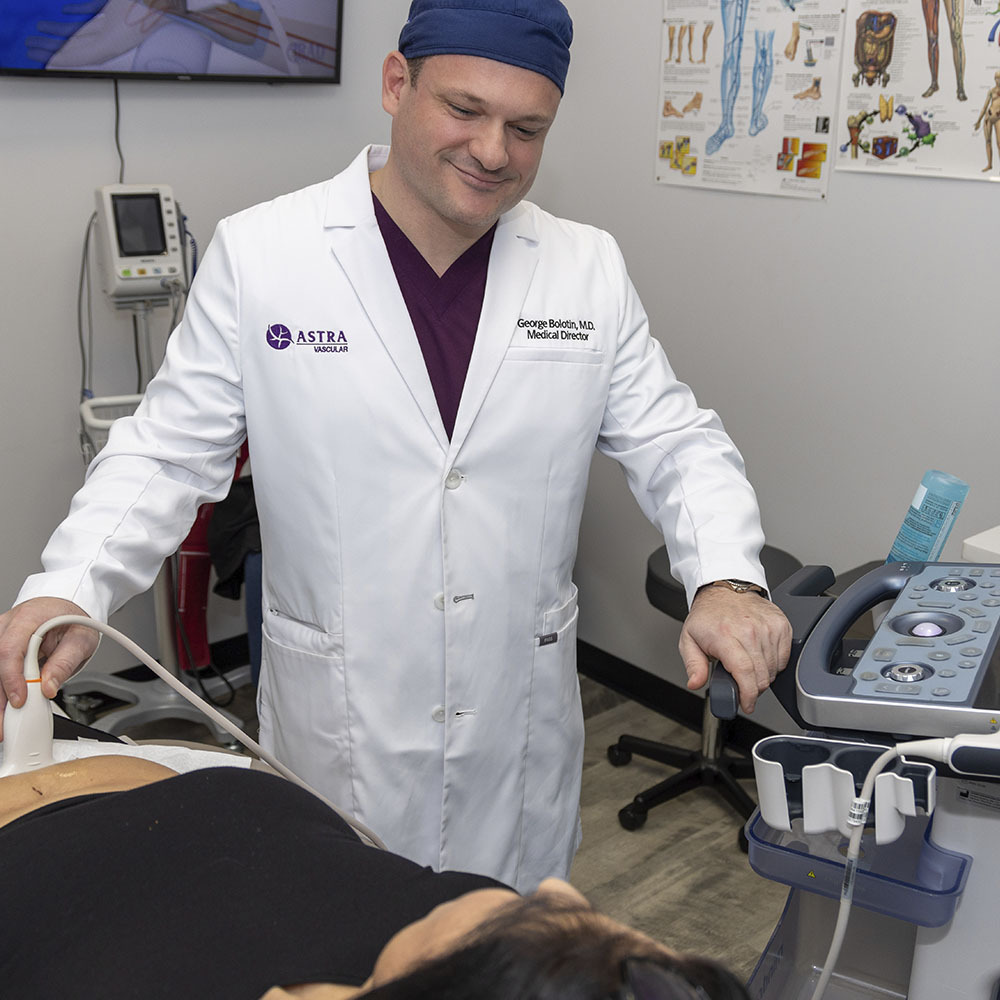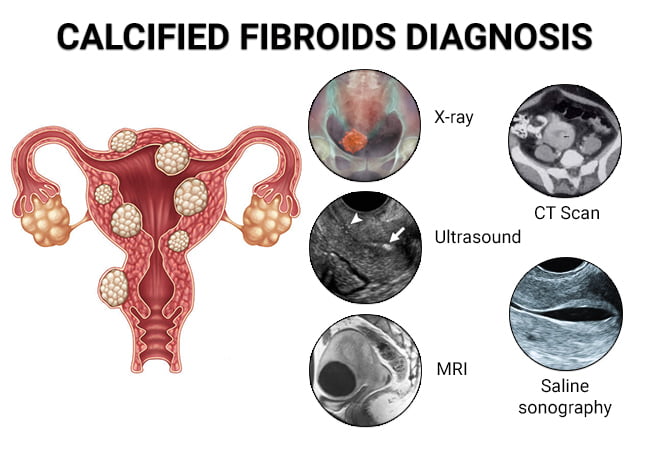
Calcified fibroids are a common condition that occurs when fibroids in the uterus harden due to calcium buildup. Fibroids typically are non-cancerous growths in your uterus. Sometimes, when they’re dying, they shrink and harden in place, instead of being reabsorbed by your body. When this happens, they become calcified fibroids. Since they’re composed of dead tissue, the calcification treatment has to involve calcified fibroid removal, usually through a minimally invasive surgical technique. You need the best fibroid specialist you can find, and in Brooklyn and Bronx, that’s Dr. George Bolotin, the founder of the Astra Fibroid Treatment Specialists. He has the knowledge and experience to diagnose your condition and perform effective calcified fibroid treatment. Call today for a consultation.
 Fibroids are abnormal masses of muscle that form on or in your uterine wall, either inside or outside your uterus. While rarely cancerous, fibroid tumors can still cause pain and other problems with your menstrual cycle, your fertility and your other abdominal organs.
Fibroids are abnormal masses of muscle that form on or in your uterine wall, either inside or outside your uterus. While rarely cancerous, fibroid tumors can still cause pain and other problems with your menstrual cycle, your fertility and your other abdominal organs.
Left untreated, fibroids continue to grow and multiply, which is when your symptoms most often appear. At the end of their lifecycle, fibroids may shrink and disappear, or instead, they may calcify and harden. Sometimes, calcified fibroids cause no symptoms, but they may cause enough trouble to warrant some kind of treatment, even calcified fibroid removal.
That’s when you require an expert fibroid expert, like Dr. George Bolotin of the Astra Fibroid Treatment Specialists in Brooklyn, NY and Bronx, NY. Dr. Bolotin is an accomplished Interventional Radiologist who focuses on fibroid and vein problems. A board-certified Diagnostic Radiologist, Dr. Bolotin uses modern medical imaging technology to identify, diagnose and treat abnormal vascular conditions.
 When fibroids degenerate, often due to the lack of or a diminishing blood supply, they may calcify. It’s considered the last phase of degeneration. All types of fibroids can calcify. Calcified fibroids are, in essence, dead tissue that has hardened. As a result, they can no longer grow.
When fibroids degenerate, often due to the lack of or a diminishing blood supply, they may calcify. It’s considered the last phase of degeneration. All types of fibroids can calcify. Calcified fibroids are, in essence, dead tissue that has hardened. As a result, they can no longer grow.
There are a number of reasons why your fibroids calcify instead of just shrinking and disappearing. It’s usually dependent on changes in your uterus or changes to the blood supply that feeds the fibroid. Reasons for calcification include:
Fibroids can grow alone or in groups. When they calcify, they’re still either single tumors or a cluster or growths. Most calcified fibroids, however, don’t cause the severe symptoms common to regular fibroids. But they may still produce some milder side effects, such as:
If you’re still experiencing these symptoms, even after menopause, seek calcified fibroid treatment from a fibroid specialist like Dr. Bolotin in Brooklyn and Bronx. He uses the latest tools, such as a fibroid ultrasound to find and identify calcified fibroids. Depending on how many he finds and where they’re located, he can then develop a treatment plan.
If you have calcified fibroids, but they’re small enough or positioned in a way that they aren’t causing any symptoms, they don’t require calcified fibroid removal. You only need calcified fibroid treatment when those hard tumors are making your life uncomfortable. Since calcified fibroids are already dead, uterine fibroid embolization (UFE) doesn’t work. In fact, some fibroids that were previously treated with UFE may have calcified later.
Therefore, while you can try medicine to lessen the symptoms, the only way to get rid of the symptoms completely is to have them removed completely. Dr. Bolotin may recommend calcified fibroid removal through minimally invasive surgery. The surgery is an outpatient procedure, meaning no hospital stay, and Dr. Bolotin and his team have the experience and skills to minimize your risks.
Your Brooklyn and Bronx fibroid specialist may discover that you have endometrial and not fibroid calcification, which is easier to treat. The endometrium is the uterine lining, and its calcification, like fibroids, reduces your fertility. Treatment of endometrial calcification is a hormone treatment consisting of a progesterone supplement. No matter what calcification treatment you need, contact Dr. Bolotin and his team at the Astra Fibroid Treatment Specialists in Brooklyn and Bronx for the best treatment.
Vein & Vascular Medical Care
4209 Ave U, Suite A.
Brooklyn, NY 11234
(347) 934-9068
Vein & Vascular Medical Care
869 E Tremont Ave
Bronx, NY 10460
(929) 447-4563